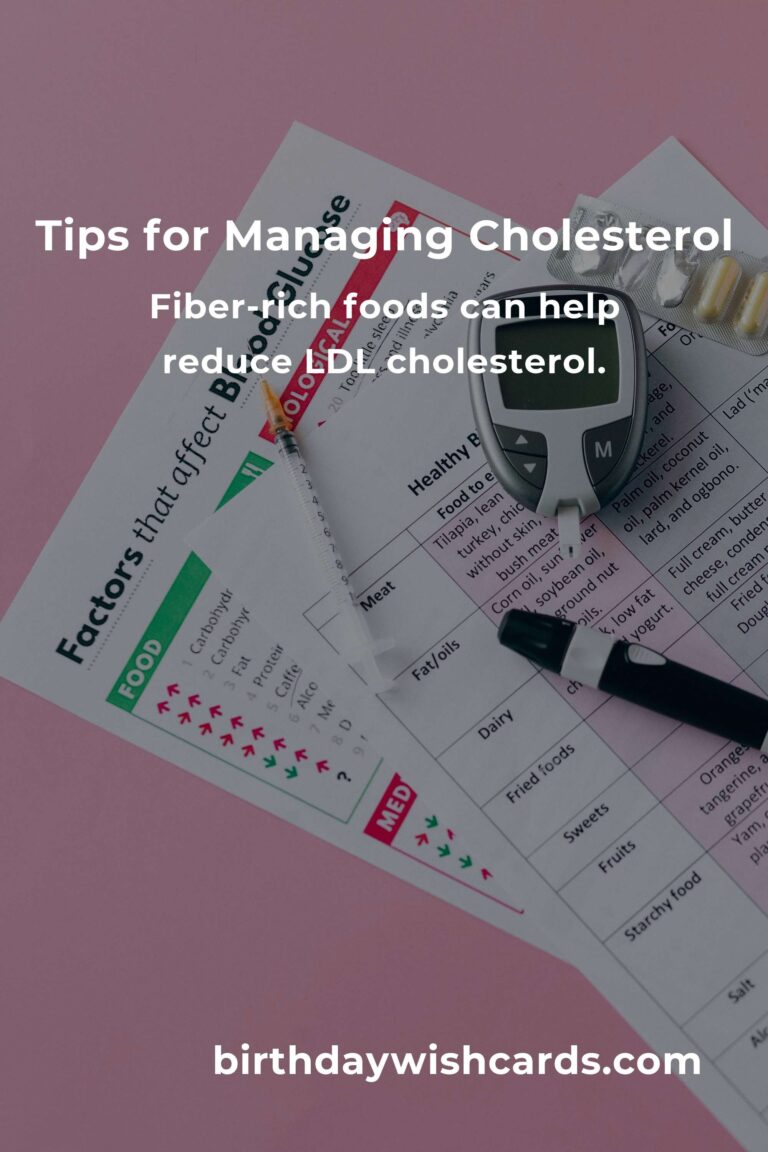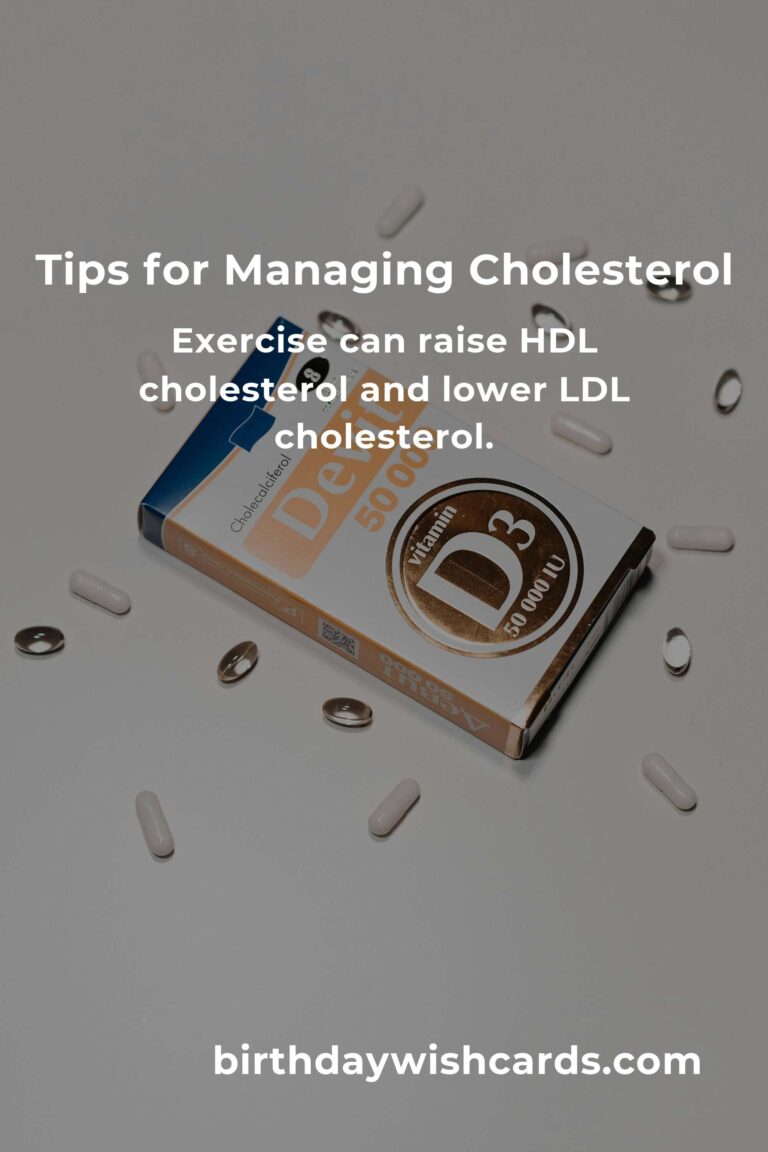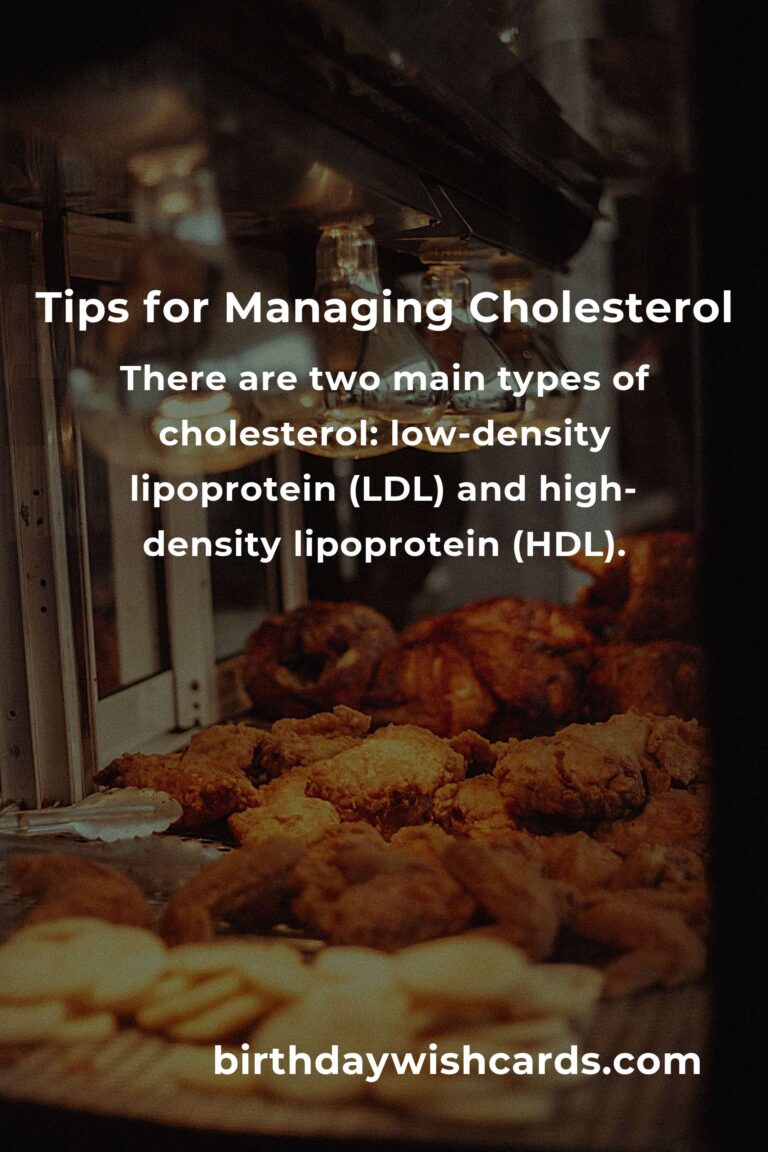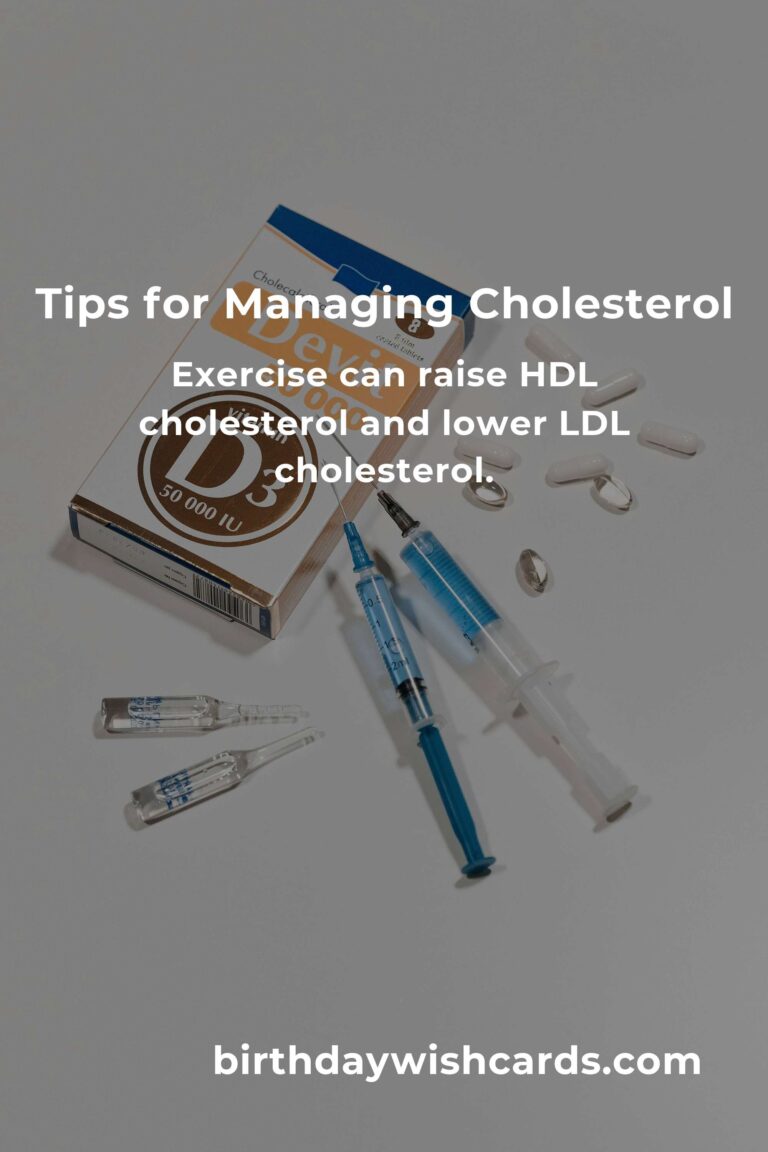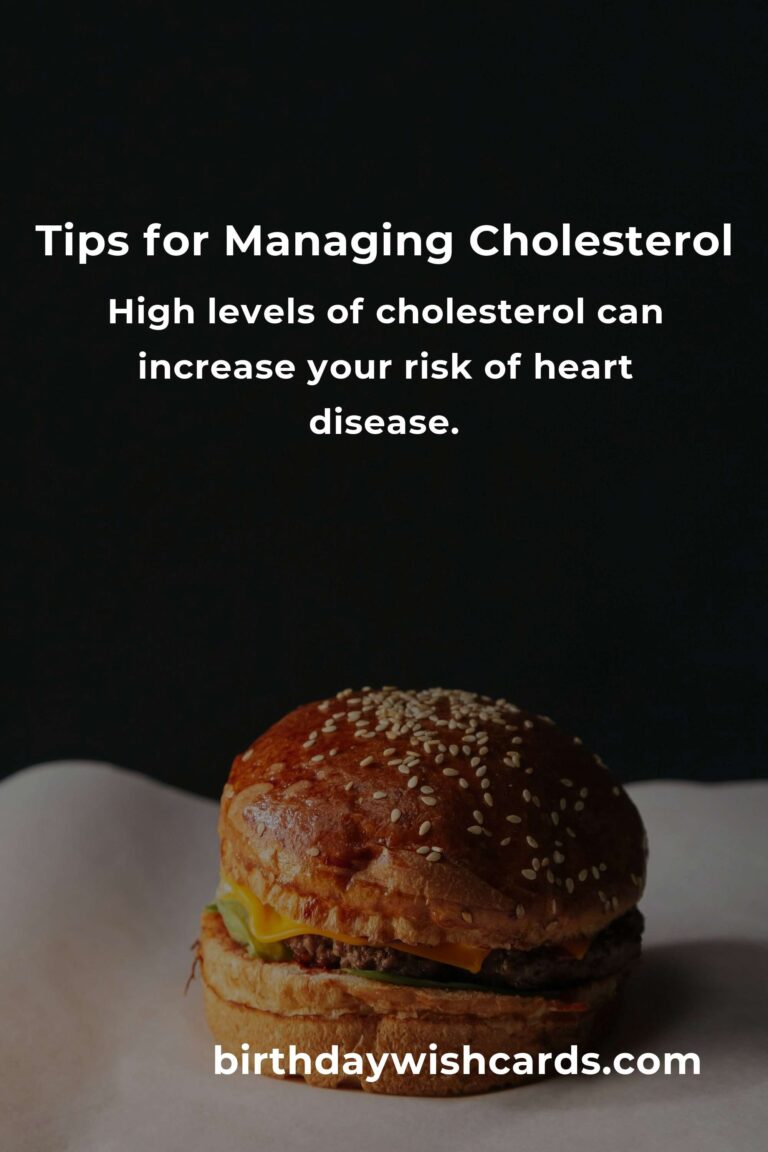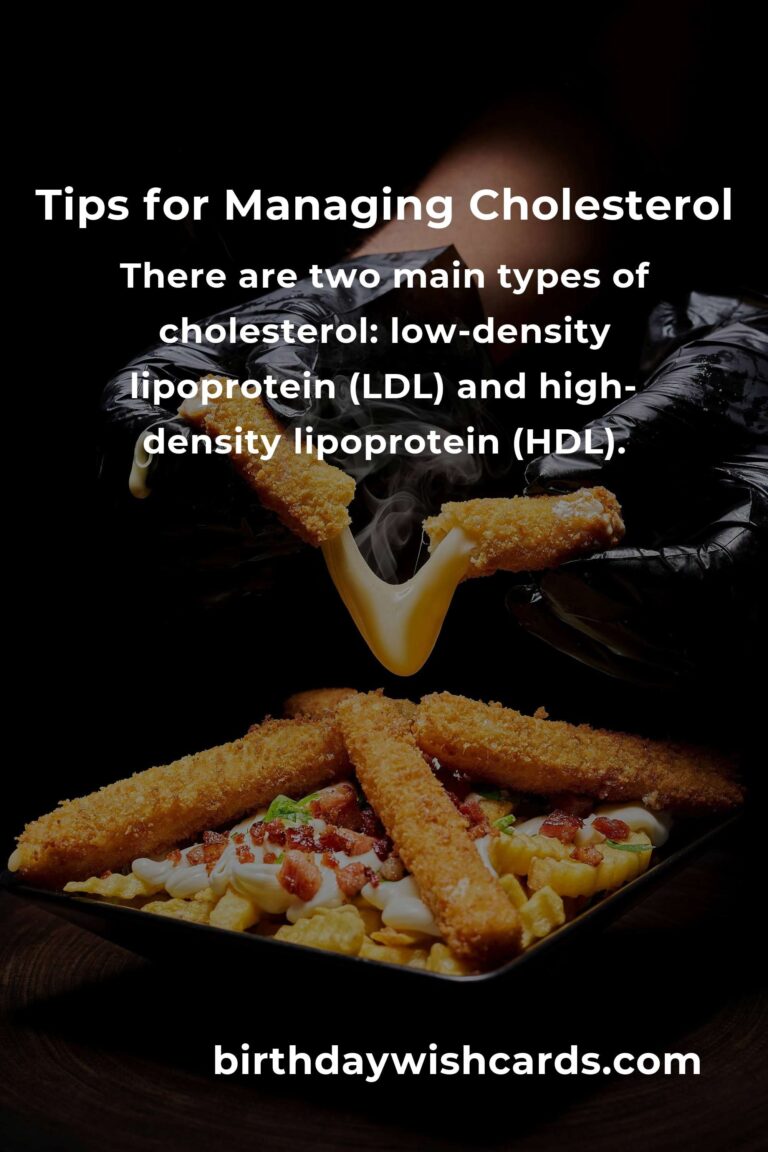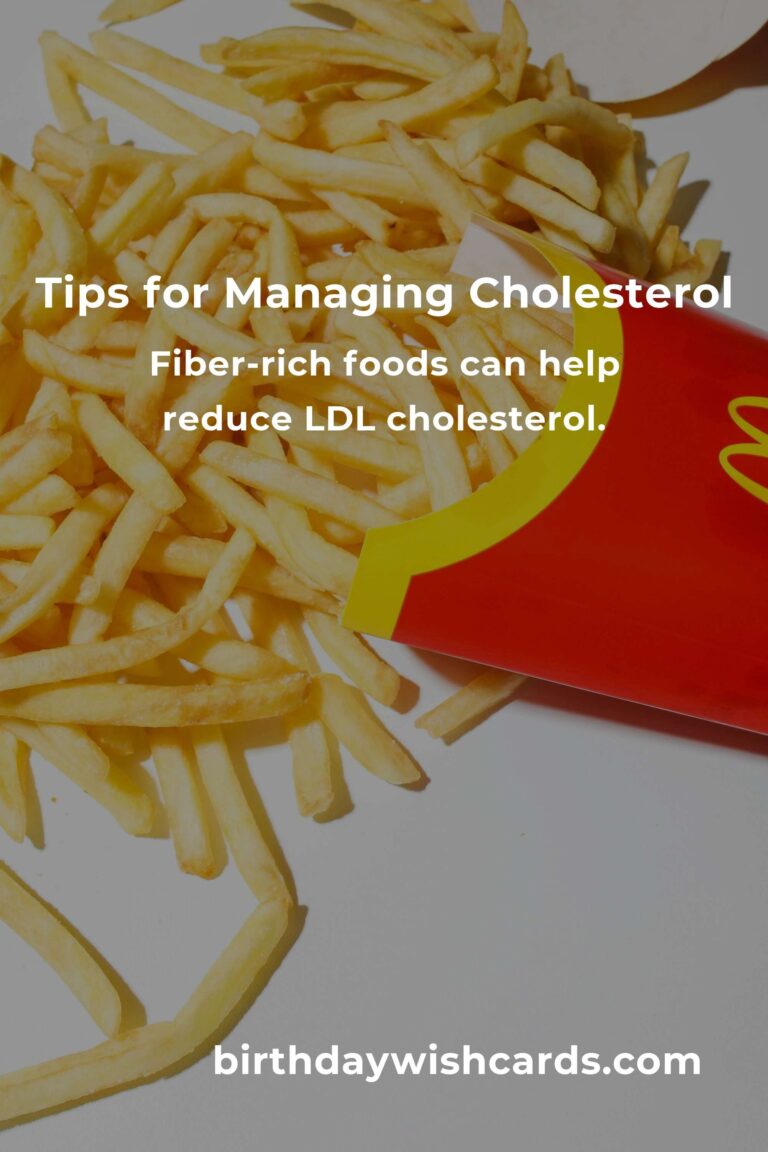
Cholesterol is often thought of as a concern for older adults, but managing your cholesterol in your 20s is crucial for long-term heart health. By understanding and implementing strategies to control cholesterol levels early in life, you can set the foundation for a healthier future.
Why Cholesterol Matters
Cholesterol is a waxy substance found in your blood. While your body needs cholesterol to build healthy cells, high levels of cholesterol can increase your risk of heart disease. Monitoring cholesterol levels is essential because high cholesterol can lead to the development of fatty deposits in your blood vessels, potentially leading to heart attacks or strokes.
Understanding Good vs. Bad Cholesterol
There are two main types of cholesterol to be aware of: low-density lipoprotein (LDL) and high-density lipoprotein (HDL). LDL, known as ‘bad’ cholesterol, can lead to the buildup of fatty deposits in your arteries. HDL, or ‘good’ cholesterol, helps remove other forms of cholesterol from your bloodstream.
Dietary Tips to Manage Cholesterol
1. Incorporate More Fiber
Including more fiber in your diet can help reduce LDL cholesterol. Foods rich in fiber include oatmeal, beans, fruits, and vegetables.
2. Choose Healthy Fats
Replace saturated fats found in red meat and dairy products with healthy fats found in olive oil, avocados, and nuts.
3. Limit Dietary Cholesterol
Aim to consume less than 200 mg of cholesterol per day by limiting intake of high-cholesterol foods such as egg yolks and shellfish.
4. Eat More Fish
Fish such as salmon and mackerel are high in omega-3 fatty acids, which can help lower cholesterol levels.
5. Avoid Trans Fats
Trans fats, found in many processed foods, can increase LDL cholesterol and should be avoided.
Lifestyle Changes for Better Cholesterol
6. Exercise Regularly
Engaging in physical activity for at least 30 minutes most days of the week can help raise HDL cholesterol and lower LDL cholesterol.
7. Maintain a Healthy Weight
Losing excess weight can help lower your cholesterol levels significantly.
8. Quit Smoking
Smoking cessation can improve your HDL cholesterol level, benefiting overall heart health.
9. Limit Alcohol Intake
Drinking alcohol in moderation can have a positive effect on HDL cholesterol, but excessive drinking can lead to high cholesterol and other health problems.
10. Manage Stress
Chronic stress may contribute to high cholesterol levels. Techniques such as yoga, meditation, and deep breathing can help manage stress effectively.
Regular Health Monitoring
11. Get Regular Cholesterol Screenings
Regular screenings can help you keep track of your cholesterol levels and make necessary lifestyle adjustments.
12. Monitor Blood Pressure
High blood pressure can exacerbate the effects of high cholesterol. Monitoring and managing blood pressure is vital.
13. Consult Healthcare Providers
Regular consultations with healthcare professionals can provide guidance tailored to your health needs.
Food Choices to Lower Cholesterol
14. Opt for Whole Grains
Whole grains like brown rice, quinoa, and whole wheat bread can lower cholesterol levels.
15. Add Plant Sterols and Stanols
Foods fortified with plant sterols and stanols can help lower LDL cholesterol.
16. Snack on Nuts
Nuts such as almonds and walnuts are excellent for managing cholesterol.
17. Increase Vegetable Intake
Vegetables are low in calories and high in nutrients, which can help control cholesterol levels.
18. Choose Lean Proteins
Lean proteins such as chicken, turkey, and legumes are better options for maintaining healthy cholesterol levels.
Habits to Cultivate for Long-Term Benefits
19. Cook at Home
Cooking at home allows you to control the ingredients and reduce unhealthy fats.
20. Read Nutrition Labels
Being aware of the nutritional content of food can help you make informed dietary choices.
21. Plan Balanced Meals
Planning meals ahead can ensure a balanced intake of nutrients that support cholesterol health.
22. Limit Fast Food
Fast food is often high in unhealthy fats and should be limited in your diet.
23. Stay Informed
Keeping up with the latest research and recommendations can enhance your cholesterol management efforts.
Additional Tips for a Healthy Heart
24. Consider Supplements
Supplements such as omega-3 fatty acids and fiber might be beneficial in managing cholesterol, but consult with a healthcare provider first.
25. Drink Green Tea
Green tea contains antioxidants that can improve heart health and reduce cholesterol.
26. Use Herbs and Spices
Herbs and spices can add flavor to food without adding extra calories or unhealthy fats.
27. Stay Hydrated
Proper hydration is essential for overall health and can indirectly impact cholesterol levels.
28. Practice Portion Control
Controlling portion sizes can prevent weight gain and help maintain healthy cholesterol levels.
29. Limit Sugar Intake
Excessive sugar can lead to weight gain and increased cholesterol, so moderation is key.
30. Avoid Late-Night Snacking
Eating late at night can contribute to weight gain, which may negatively impact cholesterol levels.
31. Get Enough Sleep
Adequate sleep is crucial for maintaining a healthy weight and reducing stress, both of which can impact cholesterol.
32. Engage in Routine Exercise
Consistent exercise is one of the most effective ways to improve cholesterol levels and overall heart health.
33. Stay Positive
Maintaining a positive outlook can improve overall health and make it easier to stick to healthy lifestyle changes.
Managing cholesterol in your 20s is crucial for long-term heart health.
High levels of cholesterol can increase your risk of heart disease.
There are two main types of cholesterol: low-density lipoprotein (LDL) and high-density lipoprotein (HDL).
Fiber-rich foods can help reduce LDL cholesterol.
Exercise can raise HDL cholesterol and lower LDL cholesterol.
Regular cholesterol screenings can help you track and manage your levels.
#Cholesterol #HeartHealth #HealthyLiving #Nutrition #Wellness


